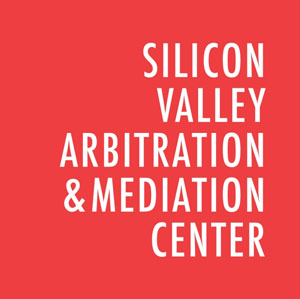One of the greatest fears US litigators have regarding arbitration is that they can’t get discovery. It’s a misperception.
A key concept in arbitration is efficiency. In the context of discovery, that means discovery should be appropriate for the case. Often clients agree to arbitration because they want speedy, cost-efficient decision-making – and that includes avoiding scorched-earth discovery practices. So, while litigators might be in a comfort zone having access to every document, imposing every interrogatory and deposing every potential witness, arbitration typically provides some restraint. The message to litigators is that clients want arbitration because they want you to save them some expense.
But you can get discovery. As with the recently amended federal discovery rules, arbitration imposes a proportionality standard. It’s not a hard and fast rule but a good Arbitrator will encourage counsel to work together to develop a reasonable, mutually agreed discovery plan, and reasonableness includes tailoring discovery requests to account for the significance of the information requested and the cost of gathering the evidence. A really good Arbitrator will push back – and ask counsel to reconsider – if counsel ask for an excessive number of depositions, far-reaching e-discovery or what may be unnecessary written discovery requests. It’s just reminding counsel that their clients may have agreed to arbitration because they want to save costs.
So what does that all mean for a trial court litigator handling an arbitration? As a practical matter, in nearly all business dispute arbitrations, parties will be required to exchange all documents they intend to rely upon and, if requested, produce additional documents in response to focused document requests. In larger cases, generally cases involving disputes over $1 million, you’ll be allowed deposition discovery, even if the other side resists it. In fact, the rules of many of the leading US ADR providers specifically require deposition discovery when requested in larger cases.
But here’s the big surprise: If the parties agree to a broad discovery – either in their arbitration agreement or by stipulation of counsel – an Arbitrator is generally obliged to honor the parties’ agreement. In arbitration, the parties specify the rules. Now that doesn’t mean every Arbitrator will blindly accept. A good Arbitrator will encourage restraint, cite to the arbitral institution rules that require efficiency, ask counsel to confirm all the proposed discovery is really what their clients want, and may even try to say no if the agreed discovery is excessive. But in the end, Arbitrators doing their job right will do what the parties agree to do, so long as it’s within reason.
It’s important to note the analysis is a bit different in international arbitration. Parties outside the US, even those in other common law jurisdictions, do not have discovery as it is practiced in the US. In fact, depositions and other US discovery mechanisms are offensive to many non-US parties, counsel and Arbitrators. (And you have to admit, US discovery can be pretty intrusive.) Accordingly, there is typically much more sensitivity regarding discovery in international arbitration cases. Depositions and other US discovery practice are generally considered incompatible with international arbitration. And, arguably there is limited if any need for depositions because witness statements are exchanged well in advance of the evidentiary hearing.
But the sensitivity regarding discovery in international arbitration is case specific. Disclosures in a case between two parties from civil law jurisdictions will almost certainly be limited to the documents each side intends to rely upon for the evidentiary hearing. In contrast, a limited number of depositions and broader document requests would not be out of the norm in an international arbitration between US-based parties, particularly where US counsel and US arbitrators are involved. In sum, in international arbitration, the Arbitrators try to meet the expectation of the parties regarding the process. And here too, when the parties agree to discovery, most Arbitrators (or at least those from the US) will oblige.
There are some lessons to be learned here beyond “the parties get what they ask for.” First, just like the Discovery Referee in court, every Arbitrator has his or her own particular approach to discovery and that may be critical if discovery is something you want or are trying to resist.
Second, it’s important – often critical – for corporate counsel to keep watch of the case and set parameters from the outset. Outside counsel need clear instruction before the first conference with the Arbitrator on whether the client wants cost-savings, as the client bargained for by agreeing to an arbitration clause, or whether the client wants to try to turn the arbitration into a quasi-litigation. If counsel for both sides press for broad discovery, they are likely to get it. In essence, arbitration provides an opportunity for a streamlined, low-cost proceeding but it’s an opportunity lost if both sides ask for something else.
Gary
